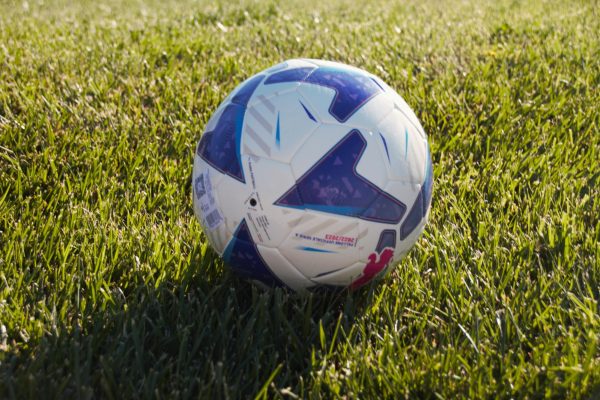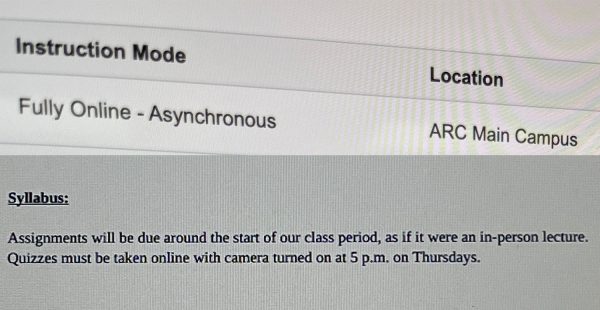Student-athletes and the power of scholarships
There should be less pressure faced by student-athletes during the scholarship process
These are some questions that go through the mind of student-athletes while looking for a scholarship. (Photo Illustration by Carla Montaruli)
When you’re an athlete in college, you’re going to face several obstacles every day. One of them is definitely the pressure of getting a scholarship.
The point is: what is it going to take to make student-athletes feel less pressure during this process?
As a student-athlete, playing tennis at American River College during my last year of community college, I can relate to the stress and the pressure that this process can cause.
The same pressure that most student-athletes have to face when they are looking for a scholarship.
“It can definitely be stressful, whether it’s because you’re talking to a lot of schools but not getting scholarship offers, or if you’re getting scholarship offers and you have to choose one,” said Kai Wallin, an ARC football player.
For many athletes, a scholarship is the only way to get to play a sport while getting a degree, so it’s understandable how some decisions can change the course of your life.
The odds of getting a scholarship depend on the abilities as athletes and students, and of course, you have to try your best so those odds increase.
According to Diana Allie, an ARC athletic counselor, the process of getting recruited with the goal of earning an athletic scholarship can be complex. There are various factors that student-athletes have to consider—coaching style, team chemistry, geographical location and financial aid eligibility. These are just a few of them.
There are several criteria and deadlines that you need to meet, which will sometimes lead you to feel as though you don’t match up and lose confidence.
“Scholarships definitely affect your self-confidence,” Wallin said. “You might gain confidence because a school is finally believing in you, or you could start to feel pressure because you’re now facing yourself with a higher level.”
Academically, you must excel with a high GPA and pass several tests with great scores. In order to be eligible to play, you have to be enrolled in a specific number of units, otherwise, you can be suspended or miss the season.
While you are going to be required to have an outstanding performance from an athletic perspective, and not just during a game but also during practice, that is when the coach chooses the line-up or who the starters are.
“It can be a stressful process. Also due to the fact that student-athletes are simultaneously juggling their academics, current season or preseason, and more,” Allie said.
As a student-athlete, your daily routine requires a lot of energy and perfect management of time and deadlines. You have to be capable of managing homework, giving your best at every practice and controlling your emotional status that day.
In addition to all of this, waiting for a call or email from a coach, that maybe is never going to get to you, can certainly affect your day. Making you start doubting if what you do is enough or if you are good enough.
However, other aspects have to be taken into account. In fact, the college can be affected by the criteria that goes into whether the school can offer a scholarship and its value.
With the COVID-19 pandemic, colleges have also paid the price, and so did the various sports programs. Some of these have had their budgets decreased, while in other cases they drop the programs directly.
It’s not just up to the coaches but they have to be able to manage the budget that the school provides.
Having a chance for you, as a student-athlete, to share your experiences with someone that is going through the same process or a person that can help to connect with the right people will be a way to make you feel less pressure.
“Some things that could make the process easier could be to talk with your coach, ask them to connect you with resources and give you tips on how to best get your name out there,” Allie said. “Or talk with the athletic counselors, which will ensure that student-athletes are enrolling in appropriate quality units (not just quantity) so that you are eligible to accept an athletic scholarship.”
In some cases, knowing the right people, who can give encouraging words or just point out the right steps to pursue, could be a big help for you to feel less stressed.
In fact, you can realize how much trust student-athletes put in school. Or in other words, the people with whom you spent most of your day learning and playing a sport that can give you the chance to earn that scholarship.
“School definitely helps enough, more than enough,” Wallin said. “Coaches, teachers and counselors, they all play a huge role and want the best for your future.”
On the other hand, as said by Allie, student-athletes have to learn how to advocate for themselves in a professional manner. Institutions have many faculty and staff who are knowledgeable and willing to aid in the process, but it is up to the student-athlete to utilize their personal tools and support system to meet others halfway to best receive that help.
To overcome this pressure caused by the idea of not being enough to earn a scholarship, as student-athletes you need to understand that there is nothing wrong with it and that it is totally normal to feel overwhelmed and stressed.
At this point, you should embrace all the skills that you gained during this process, with the help of people that want your success. Your self-confidence is also important because that is the only way in which others are gonna believe in your abilities.
“Nurturing your soft skills during this stressful time can help lead to a more desirable outcome,” Allie said.
















